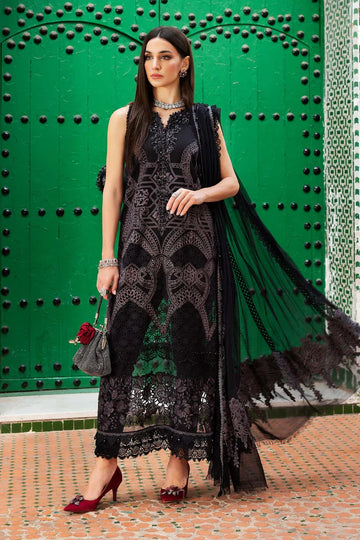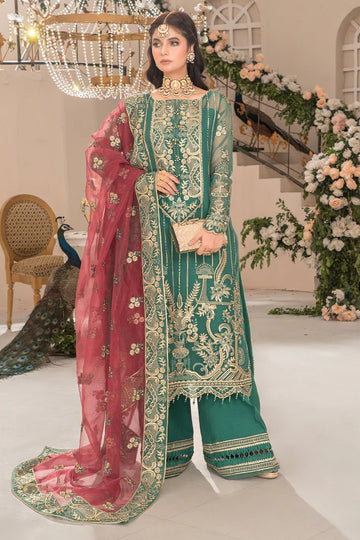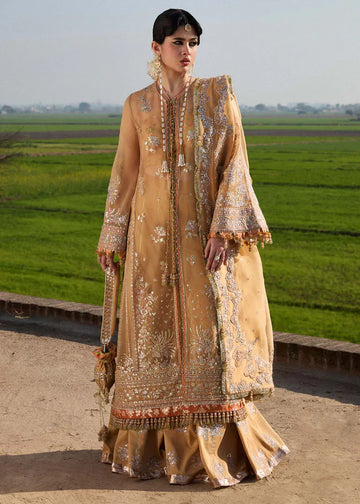Pakistani Traditional Fabric Prints UK are full of colours and fine details that is why these prints and designs are popular in different corners of the world, making Pakistani fashion special for the people living in different countries. You feel the hard work and love of the people who make these designs with great commitment and dedication.
Full of colours, life and history, these Pakistani fabric prints UK are considered the true celebration of Pakistani heritage.
Beauty of Traditional Prints
These Pakistani printed fabric UK are made with great care and love which is seen in every design. What makes them more important and unique is that they are all printed by the hands of skilled artisans.
Natural dyes coming from plants and minerals are used for these Pakistani textile prints UK that’s why the colours stay fresh for a long time and give a soft feeling on the skin. Although the process is slow, the wait for your outfit having these prints never goes in vain.
Story of Ajrakh
One of the oldest and most beautiful Pakistani block printed fabric UK, Sindh is the place that is known for Ajrak. Ajrak Pakistani traditional cloth UK is famous for its deep blue and red colours and geometric patterns. The word Ajrak means keep it today and this name shows how special it is to the people who wear it with pride.
Making Ajrak is actually a long process as fabric is printed, dyed then washed and dried many times. Wooden blocks are used by hand to stamp the designs. This process takes days or even weeks to make a single piece of cloth but when the result appears, the efforts of the skilled hands roar with excitement.
Kalamkari, an Art with a Pen
Kalamkari Prints is another famous art, meaning art with a pen, known for its soft, flowing designs that often show flowers, vines, birds or narrate historical stories.
Many fashion designers of Pakistan use this design in shawls, dupattas and dresses to bring a beautiful mix of art and tradition to modern fashion.
Simple and Elegant, Block Prints
One of the oldest techniques in Pakistan, block printing of Pakistani lawn print UK is done when artisans carve wooden blocks with eye-catching patterns then dip them in dye and that’s how each press adds a new design, layer by layer.
Each press creates part of the design, and slowly and gradually, the whole outfit comes to life. This method of designing is popular in many areas of Pakistan, especially in Sindh and Punjab. Although the method is simple, the result is out of this world.
Wearing Ajrak, Kalamkari and Block Prints
There are myriad ways to wear them. For example, an Ajrak shawl with a simple plain outfit will look stunning or wearing a Kalamkari dupatta over a solid-coloured kurta can enhance your personality.
Mixing different prints can also be a good experiment because they can be traditional or trendy, depending on how you style them.
Touch of Tradition in Modern Life
People are turning again towards handmade and traditional things nowadays and Pakistani prints like Ajrak and block printing look perfect in this idea of slow fashion because they are sustainable and eco-friendly.
Timeless Charm of Pakistani Prints
These Floral print Pakistani fabric UK are fully akin to poetry on fabric because they tell stories from history, connecting you to the past and if you wear them, you automatically get the feeling of wearing a piece of art.
The world is changing fast, but these prints make us understand what truly matters, proving that simplicity can be a real example of beauty.
Importance of Supporting Artisans
Whenever you see a beautiful Pakistani Traditional Fabric Prints UK, you shouldn’t forget that there’s a person who toils really hard to make it by learning these skills from his parents or grandparents that’s why this work is the main source of income for many families.
When you decide to buy a handmade printed outfit, you help them and in this way, you offer your contribution to keeping your culture alive. Buying a handmade outfit is a small but great gesture to show your affection for your roots that are strong enough never to be perished.







